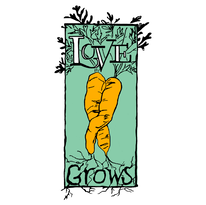|
Hey friends! I am going to talk about myself. Here we go. What is this super cool life? How did I get here? I was born and raised in Bristol Borough PA. That's the tiny Bristol, where I graduated high school with about 80 kids. It is a cool little riverside blue-collar town (currently undergoing a "Main Street revival") that I would like to live in again. The whole farming thing precludes that right now, but I am about as close as I can get in Morrisville, only 15 minutes away from where I grew up. The more I learn about the history of the land in our area, the sadder I get that our communities and their leaders were not informed enough/empowered to defend open, productive land against careless developers seeking only to profit. I lived amongst suburbs, and my parents were both raised in Levittown, the first suburb, but I had no idea of the toll that was taken. Rampant development has no regard for the stability and vibrancy that local farms bring. Hm. That got dark pretty fast. Really, that was to say that I did not grow up with the notion of farming in my mind at all. My grandparents grew veggies in their garden, and my parents dabble, but I did not have much of the proclivity. When I was a teenager, I was interested in social studies- all kinds- and I still am, but I was never quite sure what I wanted to do once I graduated high school. Going to college seemed to be the thing to do. I had been "on track" for it throughout high school, and though no one in my immediate family had gone or was pressuring me to go, I felt swept up. Later I realized that there was an ideology at work there. I would not recommend college to anyone who is not certain that they need it in order to do what they want, and even then I think it's puffed up. At something like 6 times its price from 30 years ago (far outpacing inflation), it's no secret that it's kind of a scam. With sizable scholarships, I went from St. Joe's to Bucks County Community College to Temple. I had a good time for a few years, met cool people, expanded my worldview, and I would not thank the institutions for this. I feel like I would have gotten to a very similar place just reading the books and being involved in things I care about. I did not need to spend $800/hr to look at powerpoints. My biggest takeaways were: the school system (I studied History and Secondary Education) has more to do with bureaucracy than I want to deal with, and 18 year-olds should not go thousands, sometimes hundreds of thousands of dollars into debt as their first adult venture. I dropped out of college and sort of hung out for a bit, getting into a yoga practice (endless thanks to the folks at Amrita Yoga & Wellness!) and working here and there. I do value a good deal of down-time in my life. I wish I'd taken it immediately after high school. I wish I had known about City Year, or just that a gap year was a thing. I ended up taking a gap year(ish), even as my friends were graduating and asking why I didn't just stick it out, even as I started to feel behind the pack. It was a slow, but ultimately valuable process. I was questioning what I was going to do with my time. I was carefully observing people and their choices. I wondered why kindhearted, reasonable people spent so much time working for companies that didn't share their values. Even in cases where the money followed, they were working more than doing things they liked. I did not want to do that, but I also wasn't sure if I liked anything or thought it was important enough to do it all the time. I wondered what sorts of things would challenge and fulfill me while also providing a necessary service. I tried to envision what a 'good life' was for me. At the same time, I was enjoying some occasional work at Three Springs Fruit Farm's stand at the Headhouse Farmer's Market. Generous and enthusiastic as the Wenk family is, I always took home lots of produce and treats from the market. When I laid all that gorgeous food out on the counter and thought about the delicious things I would make, I felt so wealthy. With that foray into local food culture in my head, I found myself on Coursera, taking a free introductory course on the U.S. food system. It blew my mind. From a very minor time investment came to light the insanity that we not only live with, but physically consume to stay alive every day. The 4 or 5 week-long course covered CAFOs (controlled animal feeding operations), how/why agriculture became industrialized, and directed me to documentaries like Food Inc. (on Netflix and worth a watch). All of this information had been just under my radar, but suddenly it was a the forefront of my thoughts. The backwards nature of the industrial food system became a reality that I could not ignore. I was shocked by the general disregard for this issue, for it truly affects everyone, and I was ashamed of my previous ignorance. I've had a fair few moments of epiphany like that in my life. Getting close to the truth has always been important to me, and I got to a point where I couldn't learn any more about the messed up policies and trends that weigh on my life without doing something about them. Luckily, there are other people who not only feel exactly the same way, but they're also doing something about it. Those people are organic farmers. In college I felt just as incensed about economic/racial/gender (etc!) disparity (through the lens of the education system), so why did the resolve to do something come along with food? Maybe it was more tangible- I will eat whenever the opportunity arises- or maybe because I felt I could have more of a positive stake in it. I landed on the idea of a farming apprenticeship. Still in debt at this point, I moved back home and tried to make some cash. I looked around at different apprentice programs and decided to stay close to home, so I signed on for a season at Snipes. We had been members of the CSA there the year before. Not an unpopular opinion of farming is that it is "grunt work." I encountered this view frequently when I shared my plans with people. I heard some incredulous tones and professions of unwillingness to "work that hard." In a way, their view bolstered my conviction that food was absolutely worth working for. Also, I was not a stranger to "grunt work." My dad started taking me on his general contracting jobs when I was about 12. It was plenty cushy; he paid me whatever I thought was fair, we took naps after lunch, and he took over my tasks when I got hot, grumpy, and very teenagerish. Still, I gained respect for physical labor and tedium- two things that are behind absolutely everything, even though it's pretty fashionable to keep a clear distance from them. I figured that if I could teach myself a little more of that respect and also learn the ways of the land, I'd be pretty set to farm. I was so excited to start. After I got set in the routine, I would actually spring out of bed when the sun came up and be excited for the day ahead, and, no, I have never been a morning person. I was just hanging out with cool people, having some of the best conversations ever, growing food, and eating it! The season went by so fast. I was quick to get on board for another year, which passed in a very similar way. Still very happy with the type of work I was doing, I began to have doubts about what exactly I was working towards. I didn't own any bit of the farm I worked on. There wasn't even a place for me to stay there. I didn't make enough money to support myself. I considered taking a break from full-time farming the next year to work at a restaurant, stack some cash, and formulate a long-term plan. The concept of equity was on my mind a lot, although that exploration is for a different blog post!
Most of my concerns were put on the backburner by the end of year 2, when Brad and I got together. We didn't decide to start Love Grows until January, so we lived in a sort of blissful limbo for a few months, and I didn't worry so much about next moves. We'll keep that story for ourselves. That was the first part of my journey. 2017 will only be my fourth year. I'm in a very good place, which is largely because I have an amazing partner. There are plenty of things I have yet to learn about farming. I'm sure I could kick it in gear if necessary, but I'm not really in the "head grower" category just yet. We're still finding our balance, not only of responsibilities/tasks, but with our work and the rest of our lives as well. Four years ago, I would not have guessed that by now I'd be running a farm business with my favorite person. I feel very lucky. Life is looking great from here, and the road goes ever on!
5 Comments
Hello readers! It's been while! Since we are almost through this project for 2017, we thought we'd talk a bit about how we choose our seeds. ** Edit: at time of posting...we're totally done. We have a whole box of seeds! :D ** About 90% of our seeds come from Fedco, a cooperatively-owned seed company that has been in business since 1978. Not only does their catalog have some pretty delightful illustrations... ...but they've made transparency a staple of their business. We see in them the same commitment we have to do business as ethically as possible. For example, Fedco has a supplier code that lets us know exactly what type of supplier the specific seed we're considering comes from. These codes are indispensable to us. We firmly believe in voting with our wallet. We choose the seeds coming from the #1, 2, 3, and 4, suppliers to keep our money away from those who do not share our (collective) values. Ideally, all of the seeds we buy would be organic and from a #1 supplier, but since we do not subscribe to the racket that organic certification can be, we're just as happy if the seeds come from small farmers like us, even if they aren't certified organic. A few different veggies really tested our mettle this year, but we were intent on choosing absolutely no #6s and, if necessary, a few #5s and #4s As is our tradition, more than one conversation got existential when we asked "What really is 'necessary'?" Breatharianism pending. We were mostly successful. We ended up ordering only two #5 varieties (Sungold cherry tomatoes- because we're still transitioning our customers to the indomitable Pink Princess- and Oasis turnips). Let's start with the Hakurei salad turnip. In 2016 we grew mostly Hakurei in place of other turnips, deciding that it didn't matter if other turnips store better if people just don't like turnips very much. We thought Hakurei was a game-changer; so sweet and tender (as turnips go) and almost everyone who tried it at the market bought a bunch on the spot. We were loath to cut it out this year, but we learned that it is owned by Monsanto, and you just can't un-know something like that. Fedco's suggested replacement, Oasis, actually comes from a #5 supplier, and we went for it to phase our customers out of the Hakurei daze. Oasis may meet the same end if we can't find a different supplier. Cauliflower selection was especially vexing. There is not a single variety of white cauliflower offered by Fedco that is not from a #5 or #6 supplier, while last year our favorite varieties came from #3s. Unable to find in other seed companies the same transparency that Fedco offers, we went with one green variety from Fedco (a #3) and an organic white from another. Dazzled by those beautiful purple heads we saw in markets this past year, we hopped on and quickly off the 0.5 second rollercoaster of finding "Graffiti" in the catalog and seeing that it came from a #6. Beauty is cruel master. Brad, haunted by a couple absolutely devastating tomato seasons, struggled with letting go of a hybrid red slicing tomato. Ailsa displayed the typical cavalier "all-heirloom" attitude that winter tends to inspire. The favorite hybrid, Jet Star comes from a #5 supplier. We almost went for it, the #5 turnip in our cart presenting a pretty slippery slope. Instead, we spent an unusually large amount of money on an organic hybrid from one of the more expensive companies and we're crossing our fingers for another great tomato year. Above you see Brad doing seed yoga. Ever heard of it? It's brand new. We will be using the Jang seeder (video here) to fit some extra rows in there, maybe use less seed. We're not huge on meticulous record-keeping or seed-weighing, often opting to cuddle instead. That was last year, but we won't fixate too much and we may end up cuddling less as well because there appears to be a Constitution in desperate need of upholding this year.
Pictured in the black and white catalog on the right is Magic Molly (also a highly-credentialed purple potato variety that we are forgoing due to price this year), who is "roaming the cosmos rooting out corporate tyranny." Good look, Fedco. Time to clear this post out of the draft folder after a whole year! We're looking forward to expanding and expounding our thoughts, projects, justifications, etc, but mainly we're just going to grow the food. So...maybe we'll see you back here some time... Be well! Thank you to our members who took the survey! We took a lot of care in crafting the survey in order to fill the gaps in our understanding, find out how our members feel, and see what we could improve. The survey maker we used only allowed 10 questions, so the 10th was an open-ended blob of text. We got some important responses from it though! Only about half of our members took the survey (hey folks- it's open here and we would still love to hear from you!) but we think we got the gist. Common feedback: 1. Too many veggies. Quite a few of you expressed your wish to get fewer veggies each time you pick up. Half share members were concerned that they got an influx of veggies one week and none the next week, so freshness was compromised. Even full share members ended up giving produce away. 2. Customization confusion. You've seen it. We're always working on it. Sometimes the share requests get mixed up. This has been a challenge from Day 1. Here's what's happening: -Every once in a while we have to substitute an item at the last minute. Some things just don't turn out how we want them to. That's nature! That's a CSA! -Packing error. We go into the packing stage knowing there is great potential for error here, so we are very careful with it. It still happens. We are getting better all the time. 3. Supplementing shares. Many of you said you supplement your weekly veggies with others from the grocery store/garden/farmers' market. 4. LOVED IT! We were very happy to read that many folks enjoyed their experience and the share this past season and we hope to maintain that enthusiasm into 2017! What we're improving: 1. We're rolling out new share options! Medium, Large, and Extra-Large shares! 5, 9, and 12 items respectively. Get any size either every week OR every other week. Woohoo! We're excited about this. We want everyone to eat good food and get the best deal possible for it. If you're share was perfect in 2016 the Full, Half, and Veggie Lovers Shares you're used to are still available for 2017 with different names: Large Weekly (2016 Full), Large EOW (2016 Half) and XL Weekly (Veggie Lovers). Or, opt for the smaller share delivered every week that lots of you requested! 2. In constant search of a new request system.... It shouldn't be too difficult to craft what we need but that level of technical competency has eluded us so far. We have this whole winter to work on it and we may enlist professional help. ANY WEB DESIGNERS/PROGRAMMERS OUT THERE? CAN YOU HELP US? We know just what it should look like and do, but how to code it? Ever onward! 3. Growing more of what you want. We know that many of you want fresh salad greens. We're going to try to grow these things more frequently. We had a couple really impactful crop failures. We have solutions for all but one in place (why did it have to be the onions?!) so we will have the variety we all hoped for. 4, Packaging We hate using plastic. We bet only a handful of you would rather have loose greens nestled in the box rather than in a bag, so we won't make that switch. Maybe we can get a donation for some BioBags (anyone?). We found the absolute cheapest option here and it is way out of our budget. We're also considering reusable shopping bags in the boxes so you can pull them out and go. We still need to minimize tracking/accounting for packaging and we always need cooperation in order to get it right. 5. Brad could probably be persuaded to wear a bikini. So glad I'm not the only one who has suggested it now! 6. General second year improvements! Brad and I are really excited about all the improvements we are going for next year, be they with the share, with our communication/outreach, our lifestyle, really everything. Coming out of this season with high hopes is, in itself, an achievement for a farming couple in suburbia. We are giving ourselves the requisite pats on the back for it. We're so happy to be able to do this work. A Last Word... Our sincerest gratitude to all those who offered encouragement and kind words throughout the season and in the survey. Our CSA members, who joined without knowing us at all, have a huge part in making this season what it is. We hope that you all know how important your investment is to us and to the local food system. CSA members help to sustain our business and we sustain them with the best kind of food around. We feel very grateful to be in this cycle with you.
Ailsa |
Love Grows Blog
. Archives
March 2017
|
Stay Connected |
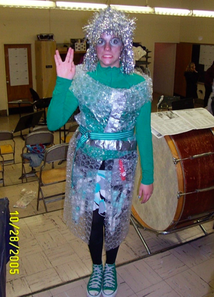
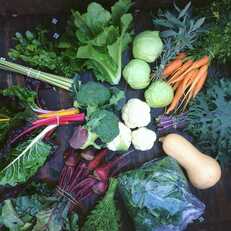
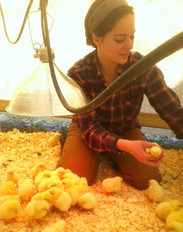
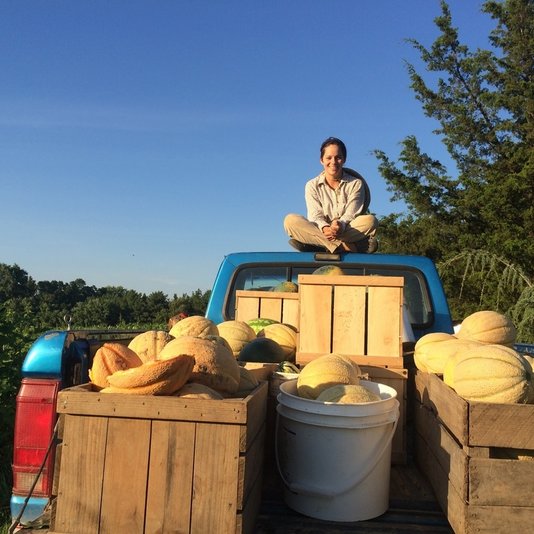

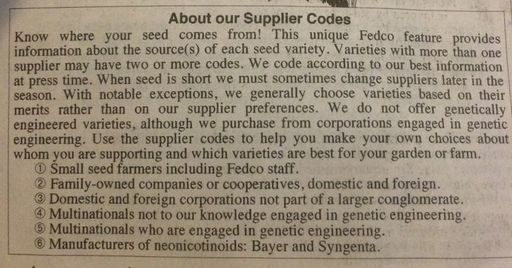
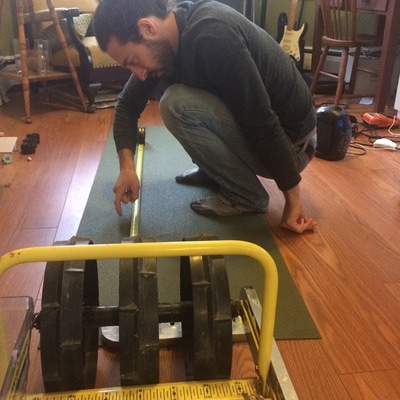
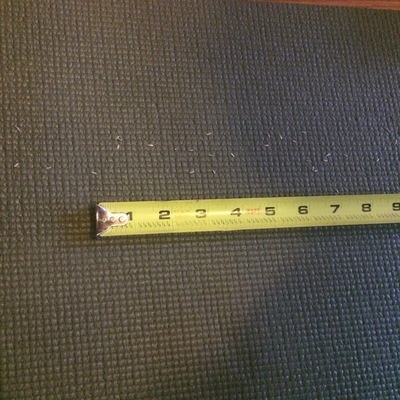
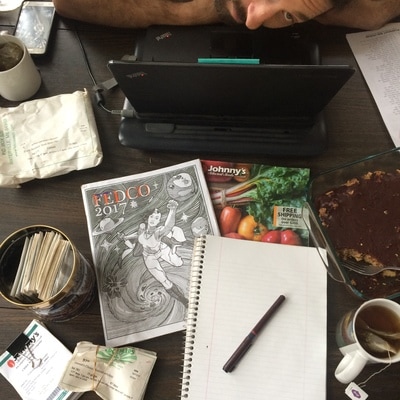
 RSS Feed
RSS Feed
